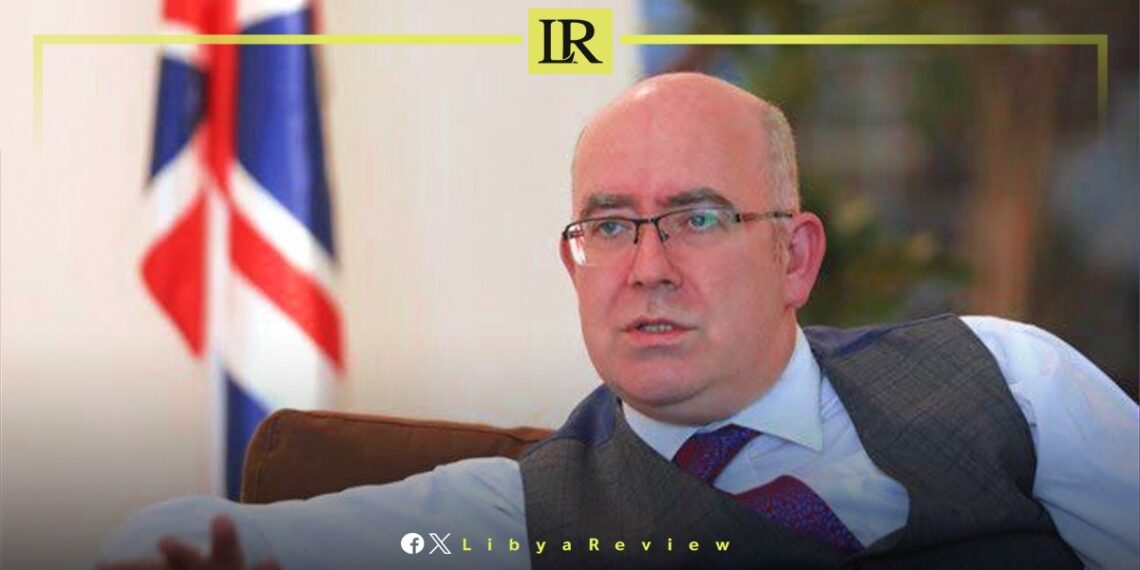The British Ambassador to Libya, Martin Longden, shared insights on Libya’s challenging journey towards unity, emphasizing the importance of continued international support.
In press statements, Longden stressed that the situation in Libya matters not just to Libyans but to the global community, highlighting Libya’s strategic importance at the crossroads of the Mediterranean, Africa, and the Arab world. A strong, prosperous Libya would greatly benefit its region, while a divided and troubled Libya poses widespread risks.
The British diplomat noted Libya’s current state shows signs of improvement compared to the dark days following the 2011 conflict.
The end of severe fighting and a reduction in terrorist threats mark positive steps forward. The resurgence of business and international companies returning are welcome developments. Yet, the foundation for lasting social, political, and economic stability remains shaky. The state is fragmented, and its resources are drained unsustainably.
At the core of Libya’s challenges is its contentious politics, a product of a tumultuous decade. Addressing these disputes comprehensively is vital for tackling the country’s issues. Longden expressed hearing frustrations from Libyans nationwide about the United Nations-led process not yet achieving the transparent, effective governance they deserve. There’s a desire for Libyan voices to be heard more clearly.
The ambassador pointed out that the political deadlock costs Libya dearly. As a middle-income country with vast wealth, Libyans deserve a better standard of living. Libya has the potential to lead in developing new paths to growth, leveraging its resources in sustainable energy, infrastructure, and more. Yet, wealth is currently consumed in ways that merely ensure survival, while Libya’s peers move forward.
Stability, crucial for change, seems unlikely without a political solution. Longden argued that the status quo, comfortable for some, is unsustainable, especially if global oil prices fall. It’s time for change, and the longer the current situation persists, the harder it will be to transition to something better.
Longden concluded with a note of cautious optimism typical of diplomats, acknowledging the difficulty, slowness, and messiness of negotiating a new political charter and unifying Libya. It requires courage and sometimes uncomfortable compromises from Libyan leaders. However, the reward—a unified, sovereign, strong, and prosperous Libya that fulfills the aspirations sparked in 2011—is well worth the effort.


